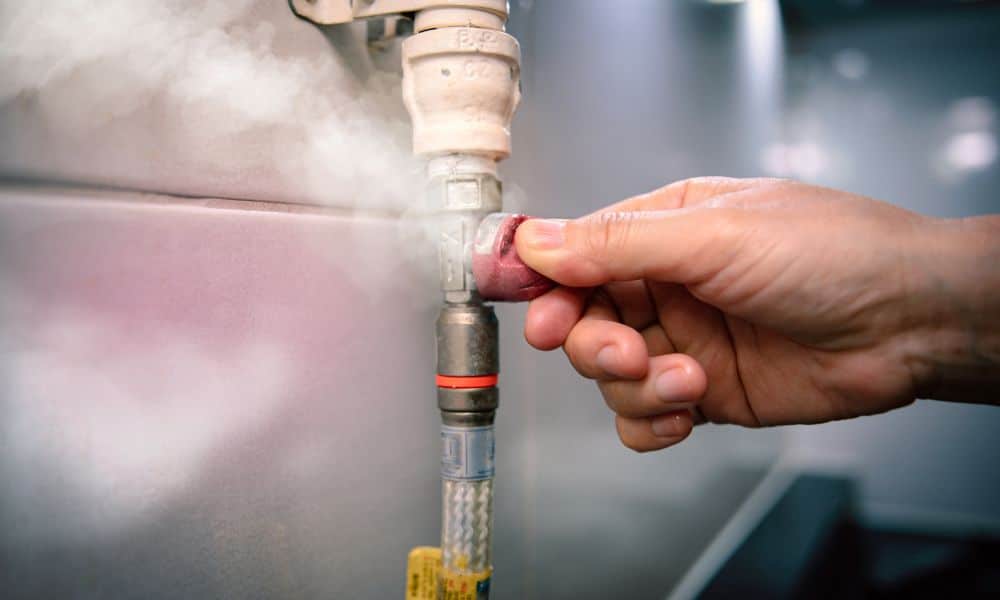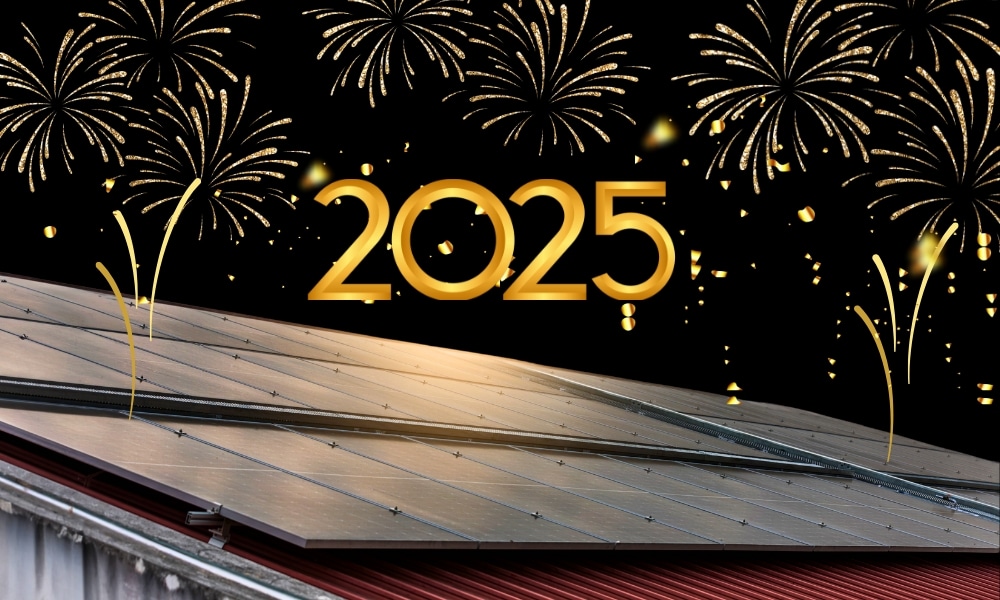Updated on 16 January 2025
2025 is here, and some major updates in the renewable energy sphere are upon us. With some minor and major impacts on home and business owners, let’s look at what the new year has in store for Australians.
In this blog
- Energy Matters TV Show: Your questions answered!
- Federal updates and changes in 2025
- News South Wales (NSW) updates in 2025
- Victoria (VIC) updates in 2025
- South Australia (SA) updates in 2025
- Australian Capital Territory (ACT) updates in 2025
- Queensland (QLD) updates in 2025
- Western Australia (WA) updates in 2025
- Tasmania (TAS) updates in 2025
- Northern Territory (NT) updates in 2025
- Don’t let the current rebates and incentives slip away
Energy Matters TV Show: Your questions answered!
Await the release of the Energy Matters TV show, our brand-new television programme, which will debut this early 2025!
Energy Matters TV Show is your go-to source for solar expert advice on energy efficiency, sustainability, and renewable energy. Roshan Ramnarain, our CEO of Energy Matters, will share his knowledge of combining stunning home designs with sustainability and helping solar energy savings.
Have a solar energy question? Submit your video question and get featured on the show!
Federal updates and changes in 2025
The greatest change to impact all Australian homes and small-scale systems is the reduction of the allocation of Small-scale Technology Certificates (STC). As we inch closer to the end of the program in 2030, the number of STCs assigned to each system will diminish. January 1, 2025, ushered in the planned reduction that will see solar systems, battery storage, heat pumps, and other small-scale systems issued with fewer STCs.
What does this mean for homeowners and small-scale systems installed in businesses?
Most individuals or businesses who install small-scale systems assign their STCs to the installer. The installer then applies a discount to the total cost of the system in line with the value of the STCs. A system installed in 2025 will receive fewer certificates than a system installed in 2025.
For instance, a 6.6 kW system that generates 62 STCs in 2024 will only receive about 55 STCs in 2025, translating to a $400–$500 rebate decrease.
Continued federal electric vehicle subsidies
EVs and plug-in hybrid electric vehicles (PHEVs) up to the luxury automobile tax threshold (currently $91,387 for the 2024–2025 fiscal year) might save thousands of dollars a year thanks to this exemption.

News South Wales (NSW) updates in 2025
The $3,000 NSW Electric Vehicle Rebate ended on 31 December 2023. Any EV purchased prior to 1 January 2024, even if awaiting delivery, may still be eligible for the rebate. Applications must be lodged before 30 June 2024. Buying both new and pre-owned electric vehicles below $78,000 are exempt from stamp duty charges.
Incentives for low-income households to install solar, as well as household energy upgrades, are still available in NSW. More information can be found at NSW Climate and Energy Action.
NSW solar battery rebate
Thanks to the rebate, customers can save up to $2,400 on a solar battery or a new solar panel and battery combination. Connecting the battery to a Virtual Power Plant (VPP) can result in an additional $400 rebate. The rebate started on November 1, 2024.
Check our page for our NSW Battery Rebate Incentives: Save Up To $2400.
Are you looking to save extra money with your Sungrow, GoodWe, or Tesla Powerwall 2 solar battery installed? Origin and Energy Matters have teamed up to provide customers with an additional way to save and make money! Join Origin Loop VPP as an Origin electricity customer and earn a $200 bonus! Earn $1/kWh during peak demand by letting them draw on your battery-stored solar energy.
Everything Electric NSW
7 – 9 March 2025 | Sydney Showground, 1 Showground Road, Sydney Olympic Park
The world’s premier home energy and electric car expo, Everything Electric, features the newest advancements in home energy and electric transportation technologies. Live theatres, electric vehicle test drives, professional guidance, and family-friendly entertainment are all part of the event.
Tickets: Energy Matters is offering a 20% discount on tickets. Make use of the promo code ENERGYMATTERS at https://bit.ly/40oCsKJ.
Australian Clean Energy Summit 2025
29-30 July 2025 | Sydney
Anyone in the Australian clean energy sector should attend the Clean Energy Council’s premier two-day annual conference, which brings together decision-makers and thought leaders from the government, business, and financial sectors to exchange models, trends, and technological advancements propelling clean energy.
Await programme updates.

Energy Next @AUSIREC 2025
8-9 July 2025 | ICC Sydney
Held on July 8–9, 2025, at the ICC Sydney in Darling Harbour, Energy Next is a free industry event focusing on the newest technology in energy management and renewable energy. It is powered by All-Energy Australia, the nation’s largest clean energy event.
Smart Energy 2025
9-10 April 2025 | ICC Sydney
Held at the International Convention Centre (ICC Sydney) on April 9–10, 2025, “Smart Energy 2025” is a major annual renewable energy conference and expo that showcases the newest innovations and technologies in the field. It is regarded as the largest event of its kind in the nation. It includes a dedicated conference stream on important industry topics, a large number of exhibitors, and expert speakers.
Wednesday, 9 April 2025:
Conference and exhibition open: 8:30 am – 5:00 pm
Thursday, 10 April 2025:
Conference and exhibition open: 8:30 am – 5:00 pm
Victoria (VIC) updates in 2025
As of 1 January 2024, no new residential home builds will be connected to gas. Homes with building permits before this date are exempt. The Victorian Energy Upgrades program will also expand to include induction cooktops. A minimum of a 7-star energy rating will be mandatory for all new homes from May 2024. You can read more about Victoria’s Gas Substitution Roadmap here.

The EV rebate slated to end in May 2024 ended early in June 2023. The $3,000 rebate for all new EVs bought for less than $68,740 ended with a low uptake of the program. Luxury vehicle stamp duty rates do not apply to any Zero Emission Vehicles (ZEVs); instead, they incur a fixed charge of $8.40 for every $200 of market value, irrespective of their buying price.
Solar, hot water systems, battery storage, and other renewables continue to be subsidised or provided loans into 2024. More information can be found at Solar Victoria.
Australia Wind Energy 2025
17-18 July 2025 | MCEC, Melbourne | 9:00 am – 8:00 pm
Meet the complete wind energy value chain at the nation’s largest onshore and offshore wind energy event. By encouraging collaboration at the local, national, and international levels, it seeks to support the development of a new energy economy.
[metaslider id=”138351″]South Australia (SA) updates in 2025
The Electric Vehicle purchasing subsidy and stamp duty exemption ended on 31 December 2023. The incentive applied to all new electric vehicles priced below $68,750, encompassing the goods and services tax, dealer delivery fees, and accessories. However, it did not cover government fees like registration and mandatory third-party insurance. The ending of the subsidy and exemption will see South Australians paying more for new EVs.
There are no existing or new solar rebates or incentives available in South Australia. Households may be eligible for free or discounted home energy upgrades. Read more about the offers here.
Australian Capital Territory (ACT) updates in 2025
Canberran new and used EV owners will enjoy two years of free vehicle registration until the exemption ends on 30 June 2024 (with the free registration ending 2 years after the date of registration). You can read more about the changes via Access Canberra.
New Zero Emissions Vehicles (ZEV) will continue to benefit from stamp duty exemption until 2030
Queensland (QLD) updates in 2025
Queensland’s Zero Emission Vehicle Rebate Scheme offers qualified residents rebates of up to $6,000 for the purchase of eligible new Zero Emission Vehicles starting from April 21, 2023.
Electric and hybrid vehicles benefit from a 33% reduction in stamp duty, levied at $2 per $100 of the sales value for amounts up to $100,000 and $4 per $100 beyond that threshold. In contrast, higher-emission vehicles face stamp duty of up to $6 per $100.
Western Australia (WA) updates in 2025
The Western Australia ZEV rebate scheme will grant a $3,500 rebate for eligible zero-emission vehicles. This rebate is applicable to 10,000 eligible vehicles licensed in WA or for a period of three years following the announcement on Saturday, May 10, 2025, whichever occurs first.
[metaslider id=”138379″]Tasmania (TAS) updates in 2025
As of June 2023, there are no rebates or stamp duty exemptions for ZEVs in Tasmania.
Northern Territory (NT) updates in 2025
Until 30 June 2027, Territorians can receive up to $1,500 of stamp duty concessions on new or used electric, fuel-cell, or plug-in hybrid vehicles valued at up to $50,000. New or used plug-in electric vehicles (PEVs) are also eligible for free vehicle registration.
Home and business owners are also eligible for the NT Electric Vehicle Charger (Residential and Business) Grants Scheme which provides $1,000 (residential) and $2,500 (business) grants for the installation of an EV charger. This scheme ends on 30 June 2024.
Don’t let the current rebates and incentives slip away
With rebates and incentives reducing and changing every year, the time to go solar is NOW. Energy Matters can help you choose the best system and installer for your home or business. We connect our customers with local and trusted solar for FREE. You will be provided with up to 3 FREE quotes for solar, batteries and more. Take advantage of current rebates and incentives TODAY!









































